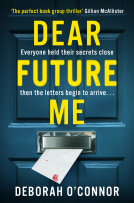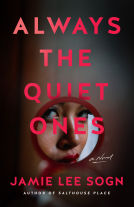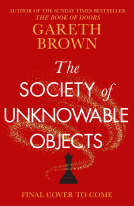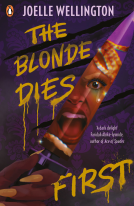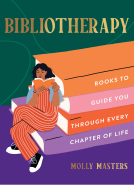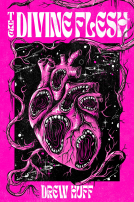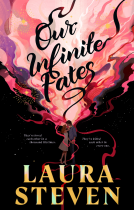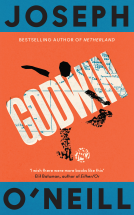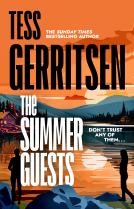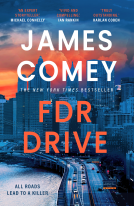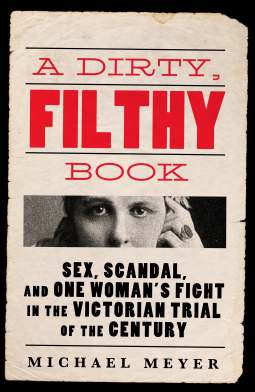
A Dirty, Filthy Book
Sex, Scandal, and One Woman’s Fight in the Victorian Trial of the Century
by Michael Meyer
This title was previously available on NetGalley and is now archived.
Send NetGalley books directly to your Kindle or Kindle app
1
To read on a Kindle or Kindle app, please add kindle@netgalley.com as an approved email address to receive files in your Amazon account. Click here for step-by-step instructions.
2
Also find your Kindle email address within your Amazon account, and enter it here.
Pub Date 8 Feb 2024 | Archive Date 15 Feb 2025
Talking about this book? Use #DirtyFilthyBook #NetGalley. More hashtag tips!
Description
London, 1877. A petite young woman stands before an all-male jury, about to risk everything. She takes a breath, and opens her defence.
Annie Besant and her confidant Charles Bradlaugh are on trial for the sordid crime of publishing and selling a birth control pamphlet. Remarkably – forty-five years before the first woman will be admitted to the English bar – Annie is defending herself. Before Britain’s highest judge she declares it is a woman’s right to choose when, and if, to have children. At a time when women were legally and socially subservient to men, Annie’s defiant voice was a sensation. The riveting trial scandalised newspapers, captivated the British public and sparked a debate over morals, censorship and sex.
Drawing on unpublished archives, private papers and courtroom transcripts – and featuring an incredible cast including Queen Victoria, George Bernard Shaw and London itself – A Dirty, Filthy Book tells the gripping story of a forgotten pioneer who refused to accept the role the Establishment assigned to her. Instead, she chose to resist.
Available Editions
| EDITION | Other Format |
| ISBN | 9780753559925 |
| PRICE | £25.00 (GBP) |
| PAGES | 400 |
Available on NetGalley
Featured Reviews
 Greville W, Reviewer
Greville W, Reviewer
This is an important and original book covering a previously ignored and forgotten but important piece of history. The trial of Annie Besant for the impertinence of publishing a book on female contraception. A subject that was taboo in Victorian England.
Impeccably researched and well written the amazing characters at the forefront of this case are brought to life and this is a fascinating read.
 Reviewer 625522
Reviewer 625522
What a woman and I had never heard of her until I saw this book. The writer tells the story very eloquently.
Thanks to NetGalley and the publisher for the chance to find out about this incredible woman
 Heather R, Reviewer
Heather R, Reviewer
My thanks to Ebury for an advanced copy of this book for review. I lived for some years in Bow close to the Match Girls’ factory before gentrification and remember the old unofficial plaque commemorating the match girls’ strike and Annie Besant’s part in it.
For the most part, this book concentrates on the fallout from Besant’s decision with Charles Bradlaugh, repeatedly elected M.P. for Northampton and eventually admitted to the Commons as the first atheist MP, to publish Fruits of Philosophy, a birth control manual dealing with the practicalities of enabling a woman’s right to choose whether to become pregnant. They were prosecuted for obscenity in 1877. The author gives us a flavour of those very different times during the trial from newspapers of the day and Queen Victoria’s journals. 45 years before a woman was admitted to the bar, Besant defended herself. Her defence fund was supported by Garibaldi but not Charles Darwin. Nonetheless, she was good at the trial, she was good at public speaking and she had a printing press. There is a lot of information in this part of the book and it is worth a read.
Annie Besant’s life was full of talking, talkers and, in her own case, a good deal of action, mainly on other people’s struggles. After the trial and, to be fair, the enormous personal cost it exacted, she continued to campaign with Bradlaugh, but whereas he, a man from a working class background, eventually gained and was happy to accept establishment recognition, she, a woman from a substantial middle class background but estranged from her abusive vicar husband, met with obstruction and her role in events was consistently effaced.
She did, however, move on from Bradlaugh’s secular reformism to become progressively a Fabian, a socialist and a trade union activist mainly in the East End of London before, bizarrely, turning to theosophy and repudiating much of what she had stood for up until then. She encounters a range of well known figures on this journey and the book is lively and informative, if in need of a fair amount of editing. There are a lot of accidentally repeated parts of sentences and wherever a person’s age is mentioned, the text has withheld the number. Some of the metaphors work and some do not and the reader is jolted from time to time by the style of writing, which is not quite consistent in tone. It’s a readable book, though, on a neglected subject.
Besant’s 40 years in India are not covered in depth in this book. The author says he is not intending to write some sort of hagiography and he does mention that she adopted a child and promoted him as the son of god until the poor lad’s shortcomings became obvious even to her. As she had done all her life, however, she also continued to weigh in on other people’s liberation struggles and, as usual, felt no compunction about declaiming on other cultures through her didactic programmes. She was at one point President of the Indian Congress. It is reasonable to wonder in quite whose interest this was and indeed why she opened so many Freemason lodges all over the British Empire.
Altogether, then, hers is a strange if compelling story. I enjoyed reading about those parts of it brought to life by this author, not least because there are so few new books brought out about radical activists, however ambivalent I may feel about them.
Biography of the fascinating 19th century socialist, feminist theosophist Annie Besant
My awareness of Besant was of her later incarnation as a theosophist, and I never realised she had had such an extraordinarily brave earlier history as an outspoken feminist and, later, Fabian. She defended herself with incisive intelligence and oratorical skills, when she was brought to trial for publishing a book which taught women how to take control of their own fertility. She had left a disastrous marriage to a bullying clergyman, and was to lose custody of her daughter. She also supported Home Rule movements in Ireland and India.
Meyer’s book is lively and well written, and uses speeches and writing from court transcripts and journals. The only reason I have dropped a star is that the decision to contrast Besant’s important writing with the rather trivial journals of Queen Victoria’s daily doings, whilst stark and interesting enough initially, did drag a little.
The point was clearly made, showing which woman was the most radical, influential person in the cause of a fairer society and particularly in empowering women. The inevitable repetition of the dull by contrast over and again excerpts from the Queen’s journals dragged a little
Readers who liked this book also liked:
Jenny Linford; National Trust Books
Cooking, Food & Wine, History, Travel
